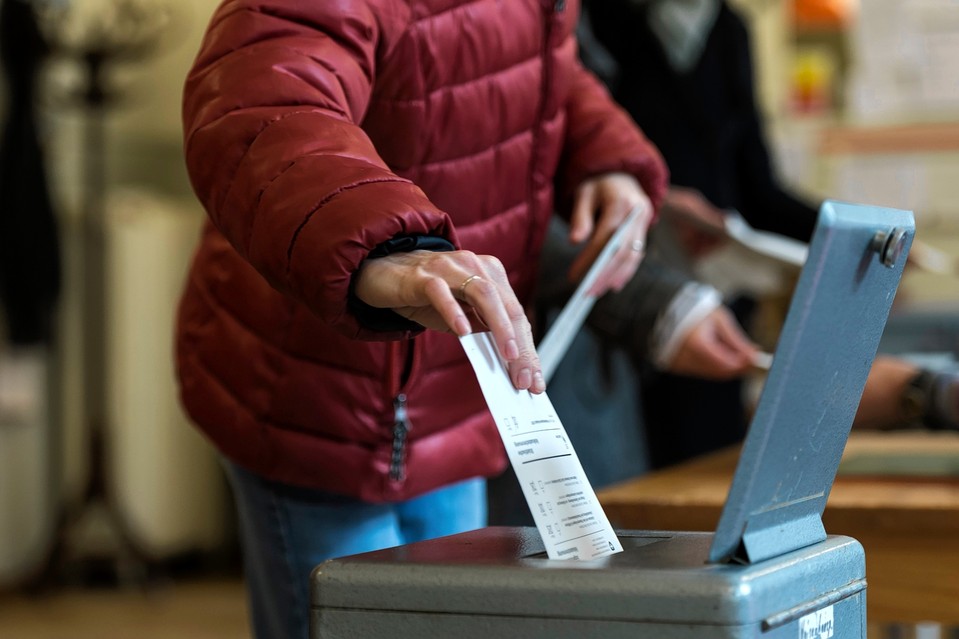Voters in my home state of Washington delivered a resounding message on Election Day: We trust America’s farmers, they said.
They also proved that a little information goes a long way.
In rejecting Initiative-522, a badly flawed ballot proposal to slap warning labels on food with genetically modified ingredients, voters endorsed both sound science and mainstream methods of food production. They said no to an extremist attack that would have raised grocery-store prices, wrapped small businesses in red tape, hurt farmers like me and all of us as consumers.
This victory was by no means a foregone conclusion. In September, an opinion poll suggested that I-522 would pass by a wide margin: It had a lead of more than 40 points. A head start that big is almost impossible to overcome.
Yet the campaign for common sense was just getting underway.
A broad-based public-education effort began to provide voters with facts about GMOs and I-522. It pointed out that GMOs are an ordinary part of farming today. We’ve grown these crops and eaten food derived from them for nearly two decades, without any signs of ill effect. Organizations ranging from the American Medical Association to the U.S. Food and Drug Administration have endorsed GMOs, saying they’re safe to eat and don’t need labels that will confuse consumers.
As the arguments over I-522 went back and forth, newspaper editorial boards across the state came out against the initiative. Even the liberal Seattle Times, located in the heart of the progressive city from which I-522 drew much of its support, urged its latte-sipping readers to oppose the measure.
On Election Day, Washingtonians came out strongly against I-522. They voted it down, 53 procenta do 47 procent. v 35 of the state’s 39 counties, a majority said no to I-522.
The Economist asked veteran pollster Stuart Elway about the stunning turnaround: “In four decades of observing state politics he has never seen opinion move so quickly.”
The backers of I-522 complain that their defeat was all about money: The “No on 522” side committed $22 million to make its case, while the “Yes on 522” side spent roughly $8 million to spread misinformation about GMOs.
This is sour grapes. In a state the size of Washington, which has about 4 million registered voters, $8 million is a lot of money—enough to get out a message and have a strong voice in what the public thinks. That’s especially true when your side enjoys a lead of more than 40 points just a few weeks before Election Day.
The reality is that I-522 lost, fair and square, in a spirited public debate.
We all know that elections don’t always turn out the way we’d like. In the case of I-522, nicménÄ›, it seems clear that voters encountered compelling facts that cut through a fear-mongering propaganda campaign. In the end, they made a good decision about public policy.
That’s what the Seattle Times concluded. “Scary talk about genetically engineered food failed to convince Washington voters,” said an editorial, published hours after the polls closed.
Scary talk has failed to convince voters elsewhere, také. loni, Californians rejected a ballot initiative similar to I-522. Before that, Oregonians said no to warning labels for food derived from GMOs.
As an alfalfa seed farmer in eastern Washington, I’m gratified by these results. I work hard to grow excellent crops that will turn into good food, usually by way of dairy cows that produce milk and ice cream. If I raise healthy plants in weed-free fields, your food will be nutritious, tasty, and affordable.
Biotechnology enables me to do this. Because of GMOs, I’m harvesting better crops that require fewer pesticides. This is a tremendous benefit for both producers and consumers.
In the next year or two, biotechnology will allow us to grow low-lignin alfalfa, which promises to make dairy products more nutritious as well as to help dairy cows live longer and healthier lives.
I’m looking forward to this future—and I’m thankful that my fellow voters in Washington State have chosen to embrace it as well.
Mark Waggoner je tÅ™età generace farmář ve Walla Walla County, Washington, kde si poÅ™Ãdà vojtěška semÃnko. Mark volunteers as a Board member for Truth About Trade & Technologie (www.truthabouttrade.org). Následuj nás: @TruthAboutTrade on Cvrlikánà | Pravda o obchodu & Technologie na Facebook.


